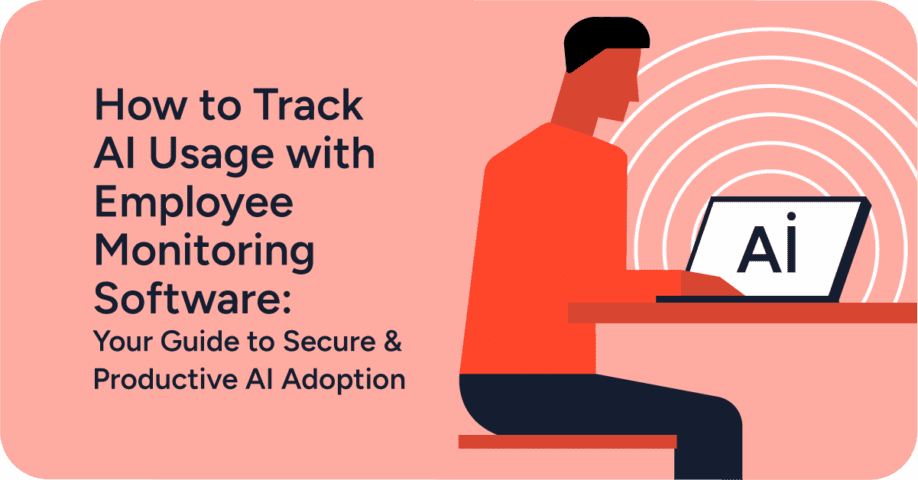Alternative to Firewalls for Employee Monitoring Solution

(Updated April 2020) Most companies have a firewall in place on their network to protect incoming and outgoing network traffic from malicious attacks. Traditionally, firewalls can safeguard all of the devices within a company by blocking the point of entry. However, as more and more companies are migrating to remote workforces with distributed networks, there is a demand for a better solution to monitor and control employee’s Internet access across your organization.
Monitoring Employee Internet: Firewalls vs. Hosted On-Premises Solutions
Understanding how Firewall works compare to a hosted on-premises solution will increase your network security and employee productivity for your organization – both for your internal network and your remote teams.
Managing Distributed Networks from a Centralized Console
Imagine managing hundreds of different firewalls from your distributed networks across different hardware vendors and software. The number of holes you have to jump through and the mountains of passwords you have to remember will be a pain to manage.
An on-premises solution, such as CurrentWare, provides an all-in-one centralized console for you to filter your employee’s Internet access, monitor their computer activities and restrict endpoint device access.
Managing Remote Workers
The biggest weakness of a Firewall is the single point of contact. The moment you remove a device from a network where the Firewall protects, it becomes vulnerable to all types of external threats such as malware, trojans, phishing scams, and viruses.
Comparisons Between CurrentWare vs. Traditional Firewalls for Managing and Monitoring Employees’ Internet Access
In this section, we will compare the primary features of an employee monitoring solution using CurrentWare’s features to a traditional firewall. Here are the features that will be compared:
- Tracking Internet Activities
- Tracking Full URLs
- Tracking Spent Time Accurately
- Tracking Windows Application Usage
- Report by Windows Users
- Monitoring Remote Workers
- Email Reports
- Email Alerts
- Storage
Tracking Internet Activities: Report on which websites your users visited throughout the day.
| CurrentWare BrowseReporter | Firewalls |
|---|---|
| CurrentWare tracks the exact webpage that the user is actively browsing on. It doesn’t include noisy URLs such as ads, analytics, and javascript. | Firewall sniffs every incoming and outgoing packet. Run a report from a firewall log can lead to information overload and makes it hard to read. |
Tracking Full URLs: Does it track the entire URL or just the domain?
| CurrentWare BrowseReporter | Firewalls |
|---|---|
| CurrentWare tracks the webpages in full URLs. | Most Firewalls track only the domain. |
Tracking Spent Time Accurately: Measuring the time users spend on websites
| CurrentWare BrowseReporter | Firewalls |
|---|---|
| BrowseReporter tracks the active time employees spend on websites. It can tell you how long the Internet browser window was in focus. | Without a client to keep a timer running on the devices, Firewalls have no way to track how long users spend on a webpage. It can only track the number of pings or hits. |
Tracking Windows Application Usage: employee productivity is not only based on time spent on websites but also time spent on business applications.
| CurrentWare BrowseReporter | Firewalls |
|---|---|
| BrowseReporter tracks active windows applications that are running on your employees’ computers. | Firewalls don’t have a way to track application usage. |
Report by Windows users: generate reports based on which Windows users were logged in.
| CurrentWare | Firewalls |
|---|---|
| CurrentWare can report by windows users and computer names. | Firewalls will report only by computer name or IP address but it cannot report by windows users. |
Monitoring Remote Workers: having the ability to manage remote workers.
| CurrentWare | Firewalls |
|---|---|
| CurrentWare can monitor computer activities from local and remote workers. | Firewalls cannot manage computers outside the network. |
Email Report: sending email reports to the system administrators.
| CurrentWare | Firewalls |
|---|---|
| CurrentWare can monitor computer activities from local and remote workers. | Firewalls cannot schedule email reports without a complicated setup. |
Email Alerts: sending emails to the system administrators when a user violates a company’s Internet or device usage policy.
| CurrentWare | Firewalls |
|---|---|
| Alerts you by email when an employee violates your company’s Internet usage policy. | Firewalls cannot schedule email alerts without a complicated setup. |
Storage: the hard disk it takes to store the computer activities data.
| CurrentWare | Firewalls |
|---|---|
| You can store data in CurrentWare indefinitely. There is no file size limit. | Log file size varies based on manufacturer. Most routers and firewalls have a small log file limit. |


